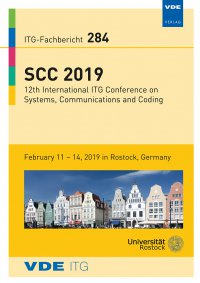Trade-Off Between Measurement Accuracy and Quantization Precision for Minimum Bayes Risk in Wireless Networked Control Systems
Konferenz: SCC 2019 - 12th International ITG Conference on Systems, Communications and Coding
11.02.2019 - 14.02.2019 in Rostock, Germany
doi:10.30420/454862011
Tagungsband: SCC 2019
Seiten: 6Sprache: EnglischTyp: PDF
Persönliche VDE-Mitglieder erhalten auf diesen Artikel 10% Rabatt
Autoren:
Kiekenap, Kilian; Al-Shatri, Hussein; Klein, Anja (Communications Engineering Lab, TU Darmstadt, Merckstr. 25, 64283 Darmstadt, Germany)
Inhalt:
In this work, we focus on the transmission of measurements to an estimator over a wireless communication channel with limited capacity. The process it divided into two phases, measurement and transmission. In the first phase, multiple noisy measurements of the sensor value, which is assumed to stay constant over those measurements, are taken. More measurements can improve the accuracy, but also consume more time and energy. These measurements are aggregated into a sum value, which is quantized and transmitted over the communication channel with limited capacity. The measurement and transmission phases share the same time and energy budget, which limits the number of measurements and the number of bits that can be transmitted.At the receiver, the aggregated value is fed into an estimator optimized for a certain Bayes risk distortion function. Since the resources used for measurement and transmission are limited, a trade-off between measurement accuracy and quantization precision for minimum Bayes risk is found. Moreover, the influence of different resource limits for time and energy, as well as different ratios of the resources used by the measuring process and the transmission process are investigated. Both parameters show great influence on the optimum time and energy resource allocation.


